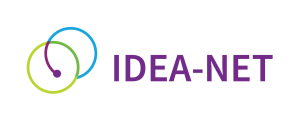University of Edinburgh – Edinburgh, Scotland
The name of the students support office/ programme in the University of Edinburgh is the Disability and Learning Support Service which provides support to students whose studies are affected by a disability, learning difference, health or neurodiverse condition, and was established over thirty years ago.
The activities that the Disability and Learning Support Service has carried out with regard to equal access, inclusion and diversity include:
- Support and counselling for students and university staff
- Lectures, workships, seminars for students, faculty and non-teaching staff
- Training courses for peer educators
- Public promotion (production of media content such as podcasts etc.)
- Improving physical accessibility
- Improving digital accessibility
- Implementing practical support for disabled students
In addition to these activities, the service implements strategy/action plans to counter exclusionary and discriminatory practices in the University.
The motivation for establishing the support service was to be able to provide support to students whose studies may be impacted by their disability or health, with it being crucial that all students are able to access all aspects of the teaching, learning and research activities that the University has to offer.
This service is deemed successful based on regular positive feedback from students (and staff). The Disability and Learning Support Service has also contributed to significant policy, practice and procedure changes across the institution, and have increased awareness of disability/ learning differences etc. across the University.
The Disability and Learning Support Service in the University of Edinburgh is governed by national policy, specifically the 2010 Equality Act (United Kingdom).
The Disability and Learning Support Service employs 63 individuals and is structured as follows: One director, four assistant directors, eight disability and inclusion advisors, three disability and inclusion offices, five operations coordinators, eighteen mental health mentores, two autism mentors, five specific learning differences tutors, four electronic notetakers, eight manual notetakers/practical support assistants and five proofreaders.
Diversity, inclusion, and equality are explicitly mentioned in the support service and University’s strategies, policies and work plans.
Teaching staff and colleagues within each academic School/Department contribute to most of the decisions regarding programme design.
The Disability and Learning Support Service is part of local, regional and national official networks with the benefits of these networks being the sharing of good practices and expertise.
Funding of the Disability and Learning Support Service is relatively stable with funds being received from the UK government and internal University funding.
However, the main obstacles to ensuring the long-term sustainability of this service is the UK economy and the unpredictable nature of government decisions regarding the funding of Universities and the funding of support for disabled students.
The Disability and Learning Support Service has a formal evaluation process with success of the programme being measured through regular requests for feedback, direct to students, plus annual evaluations carried out by the service itself and the wider University and Students’ Associations.
After data is collected, described above, the evaluation report is disseminated to all students and staff, in addition to being made available on the University’s public webpages.

Disability and Learning Support Service
Edinburgh, Scotland
IDEA-net: Expanding the network of Inclusion, Diversity, Equity and Access (IDEA) practitioners in higher education through institutional capacity building
Project ref: 2022-1-NL01-KA220-HED-000089789

This project has been funded with support from the European Commission. This website reflects the views only of the authors, and the Commission cannot be held responsible for any use which may be made of the information contained therein.
